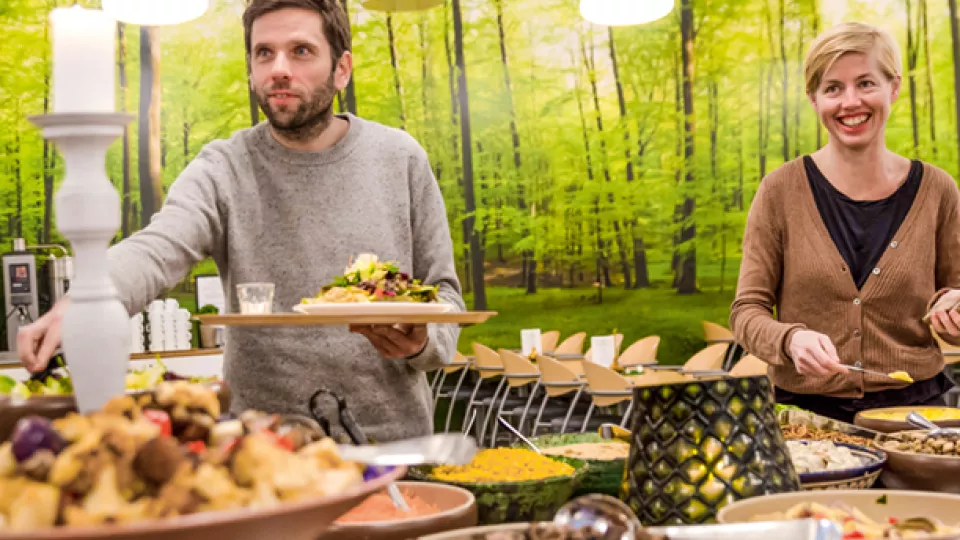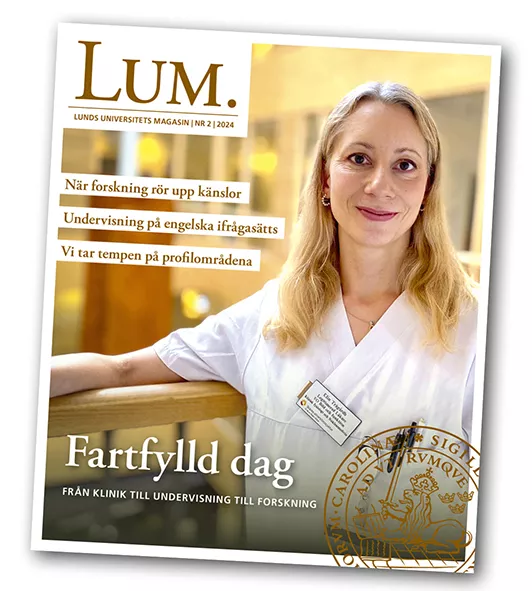Vegetarian food shall be the first option for catering and other activities where food is pre-ordered. This is what both department boards have decided on.
There will not be a ban on meat and fish; however, those who would like to eat it must make an active choice to do so. Those who do not make a choice will be served a vegetarian meal. Exceptions to having vegetarian food as the first choice will exist for entertainment-related restaurant meals in connection with visits from international guests.
The University's environmental manager, Claes Nilén, welcomes the decision taken at the two departments. According to Nilén, many discussions are taking place across the University to prioritise vegetarian meals.
"I think the decisions that have been taken are exemplary", he says.
The Department of Biology took the decision at the board meeting in November. Board members Emma Kritzberg and Tobias Uller pressed for the change. Having vegetarian meals as the first option and for meat to be a special dietary request is something they consider a natural development, particularly in view of increasingly evident climate change.
"If we do not eat as much meat we reduce our impact on the climate, so this is a decision that has positive effects. It is quite a simple step to take", says Emma Kritzberg.
"Of course, this is not a ban on meat and fish; it is simply a way to try to contribute to the reduction of our climate footprint. As a public authority there are significant demands on us to do what we can", says Tobias Uller.
The decision on vegetarian food as a first option applies to the department's activities, for example away days and workshops or when catering for events. Vegetarian food refers to lacto-ovo vegetarian food, that is, meals which may contain dairy products and eggs.
Tobias Uller and Emma Kritzberg hope the decision inspires catering companies to focus more on vegetarian alternatives. The hope is also that other parts of the University will follow suit.
The Department of Psychology has already taken the step. In December, they took the same decision as the Faculty of Biology. The head of department, Robert Holmberg, says the decision will apply to everything from coffee break snacks and catering to workshops and away days. As at the Department of Biology, those who would like meat or fish will be able to choose it.
"There is no compulsion involved. I see it as a clever change in prioritisation, it will be exciting to see how it goes", says Robert Holmberg.
Within the University some research centres have policies and recommendations that correspond to the formal decisions taken by the two departments. LUCSUS, Lund University's Centre for Sustainability Studies, has taken it a step further and is not offering meat as an alternative, a practice that has been in place for many years.
"I do not think we have ever received a request for meat", says Wim Carton, representative for the LUCSUS environment group.
The Centre for Environmental and Climate Research (CEC) does not have its own policy; however, it follows the Sustainability Forum's list of requirements. The requirements state that vegetarian alternatives shall be the main alternatives, irrespective of whether they are main meals or snacks.



